The Independent's journalism is supported by our readers. When you purchase through links on our site, we may earn commission.
Travel guide to... Madeira
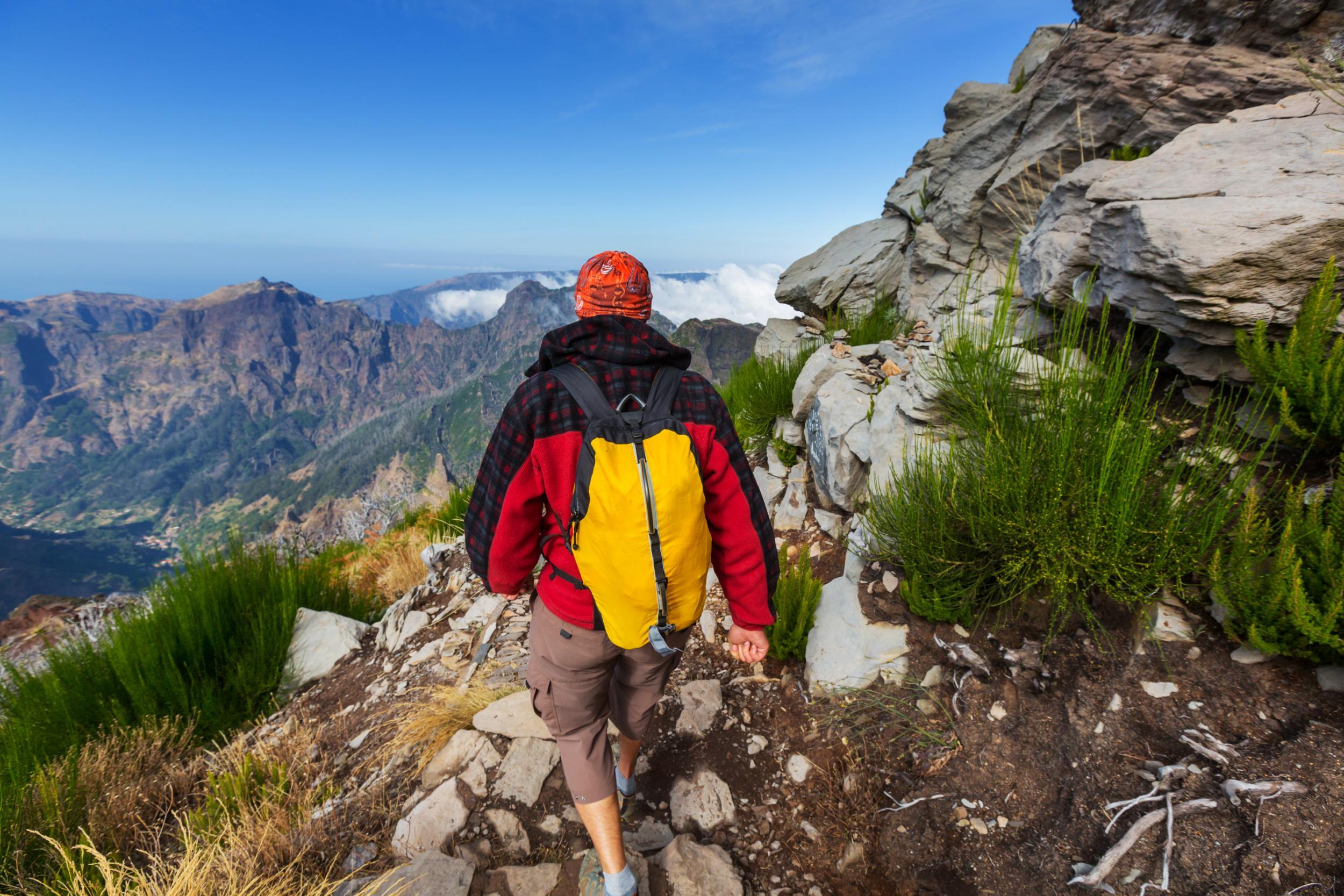
Your support helps us to tell the story
From reproductive rights to climate change to Big Tech, The Independent is on the ground when the story is developing. Whether it's investigating the financials of Elon Musk's pro-Trump PAC or producing our latest documentary, 'The A Word', which shines a light on the American women fighting for reproductive rights, we know how important it is to parse out the facts from the messaging.
At such a critical moment in US history, we need reporters on the ground. Your donation allows us to keep sending journalists to speak to both sides of the story.
The Independent is trusted by Americans across the entire political spectrum. And unlike many other quality news outlets, we choose not to lock Americans out of our reporting and analysis with paywalls. We believe quality journalism should be available to everyone, paid for by those who can afford it.
Your support makes all the difference.It’s been known as a destination for “newlyweds and nearly-deads”, but now Madeira is shaking off the shackles of its rather staid reputation and proving it’s got more to offer than just fortified wine and Cristiano Ronaldo.
Portuguese by ownership but closer to North Africa by geography (it’s 540 miles from Lisbon, but only 360 from Morocco), this subtropical speck in the Atlantic shares few physical characteristics with either Europe or Africa.
Instead it has a unique primordial rawness thanks to ancient volcanic activity, with cloud-shrouded toothy peaks and lush, plummeting valleys, exuberant with greenery. Many of the beaches are black and rocky, scattered with boulders rather than shells.
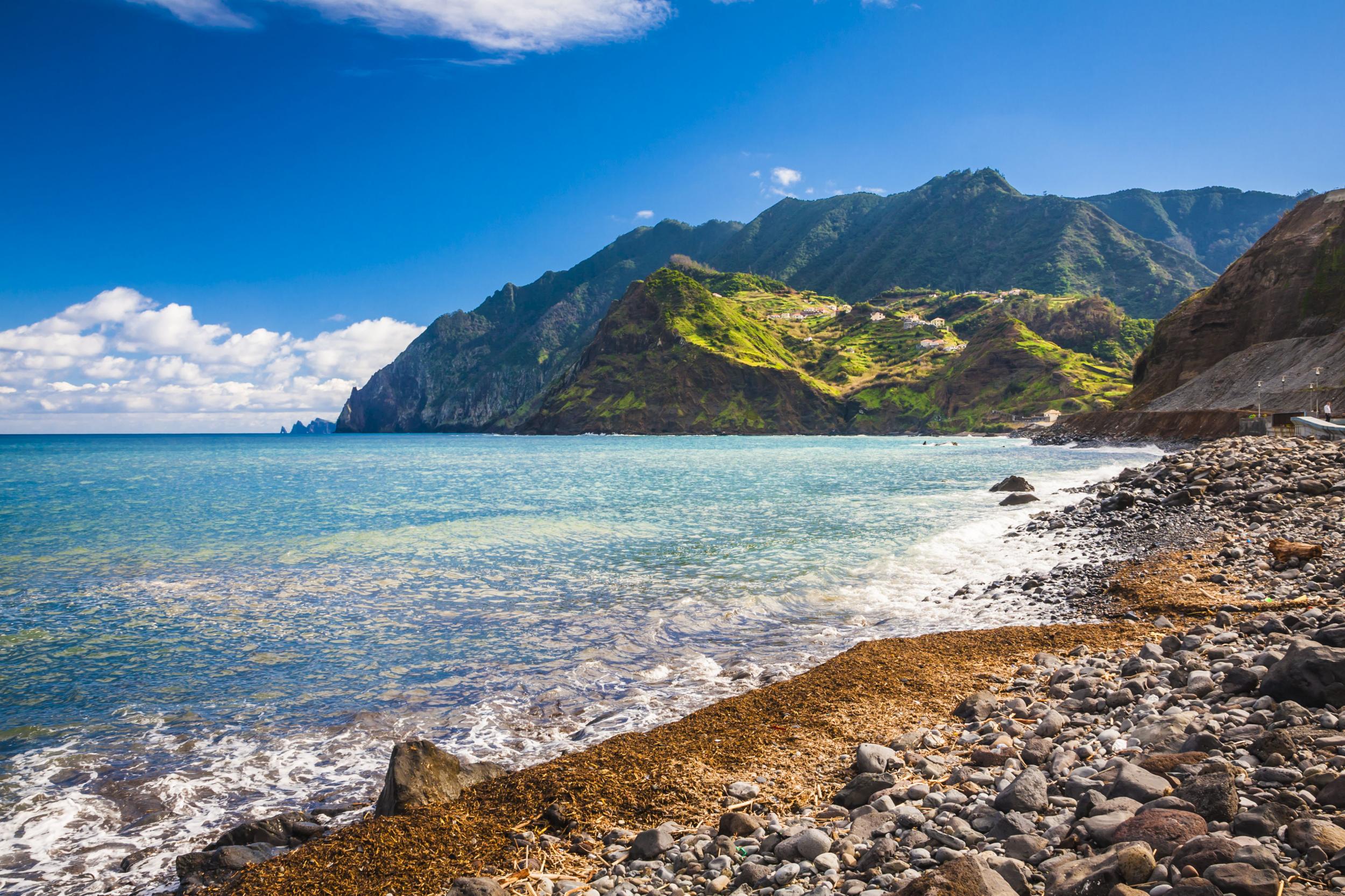
It’s this landscape that is such a draw for thrill-seekers, with activities such as mountain biking, canyoning and paragliding experiencing a boom in popularity. But for those who prefer to appreciate the landscape without the adrenaline rush then there are more than 1,000km of footpaths running alongside the levadas (irrigation channels) which snake their way through the countryside, and cable cars from which to enjoy aerial views.
The volcanic soil means that almost anything can, and does, grow on Madeira. The numerous botanical gardens host a luxuriant selection of both tropical and indigenous plants and a visit to the famous Mercado dos Lavradores farmers’ market will reveal a cornucopia of curious hybrid fruits set out in kaleidoscopic displays. Stall-holders will offer a taste, but be careful not to buy without checking the prices first.
Madeira is still a popular cruise ship destination, with hulking-great liners bringing an almost daily deluge of day-trippers. The capital, Funchal, is big enough to absorb the influx of the crowds but it’s after the sun goes down and the cruisers are back on board that the locals come out to play and the streets of the old town take on a party atmosphere.
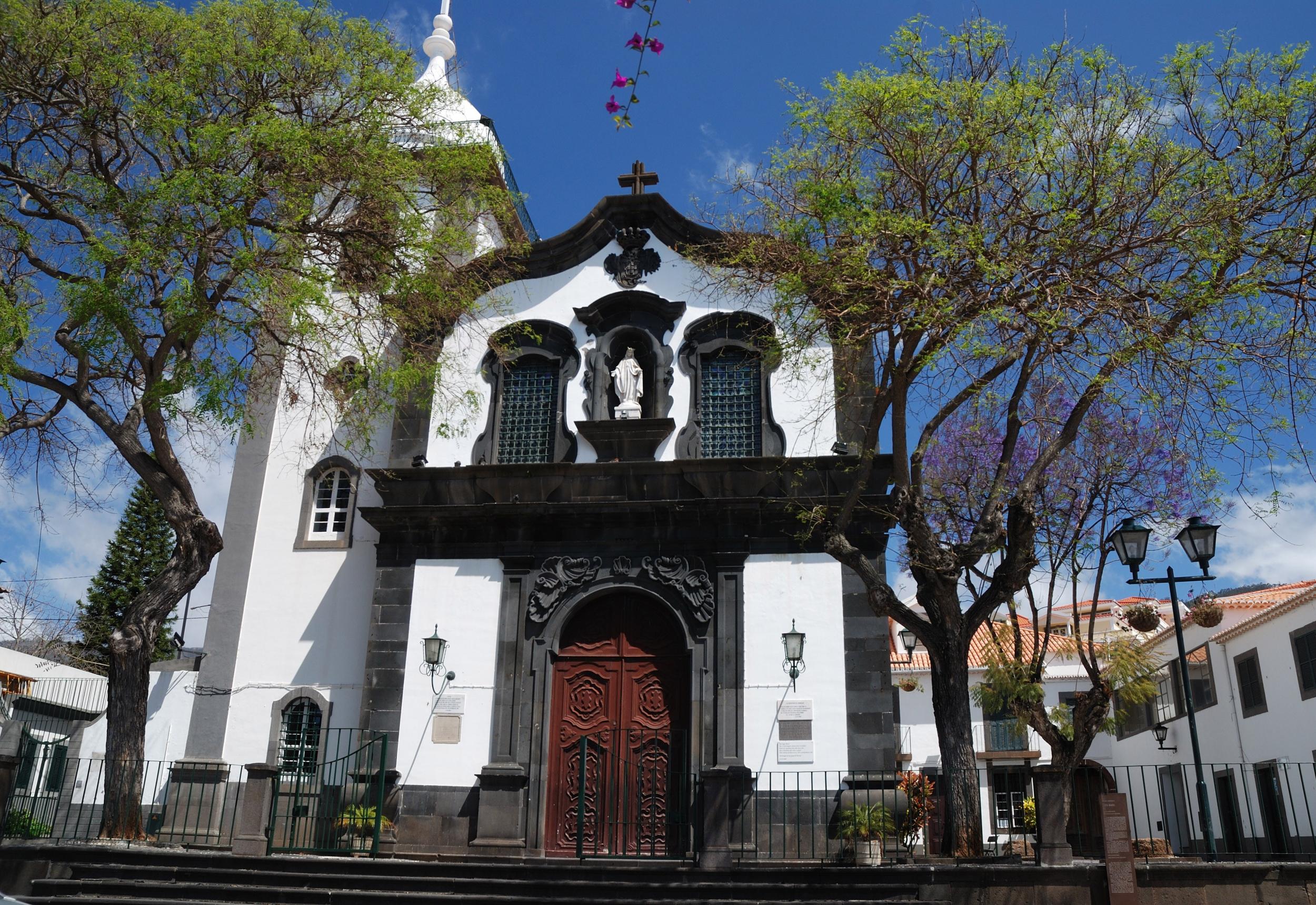
While most of the hotels and attractions are centred around Funchal, to get a more authentic taste of island life head out to a picturesque fishing village such as Winston Churchill’s favourite painting spot – Camara de Lobos – or further inland to Prazeres, which is surrounded by mountains and lush eucalyptus forests.
Madeira is warm all year-round with temperatures rarely rising above 30C or falling below 16C. However, there are six micro-climates which means that you could be battling chilly drizzle one minute and sunbathing on the beach the next.
Currently £1 is worth €1.19, while US$1 is €0.90.
Food & drink
Madeira is famous for its wine and no visit would be complete without a tour of the Old Blandy Wine Lodge (madeirawinecompany.com; tour €5.50) to find out how the wine is made and participate in a tasting.
Most Madeirans drink poncha however, a potent, tooth-achingly sweet concoction made from fermented sugar-cane juice and fruit. The island is scattered with small, traditional poncha bars and everyone has their favourite. Most don’t have names so the best ones can be harder to track down, like the one in Ribeira Brava, a small town around 20 minutes’ drive from Funchal. If in doubt, just ask a local to point you in the right direction.
Seafood is plentiful in Madeira and one of the specialities is black scabbard – a mind-bogglingly ugly, but exceptionally tasty fish – with bananas. Head to Armazem do Sal (armazemdosal.com) for a contemporary take on this classic dish. Another speciality is espetada – large chunks of beef rubbed in garlic and salt, skewered on to a bay leaf and cooked over hot coals. As Vides (Rua da Achada 17, Camara de Lobos; 00 351 291 945 322) has been open since 1950 and was the first restaurant in Madeira to serve espetadas, and still dishes up some of the best on the island.
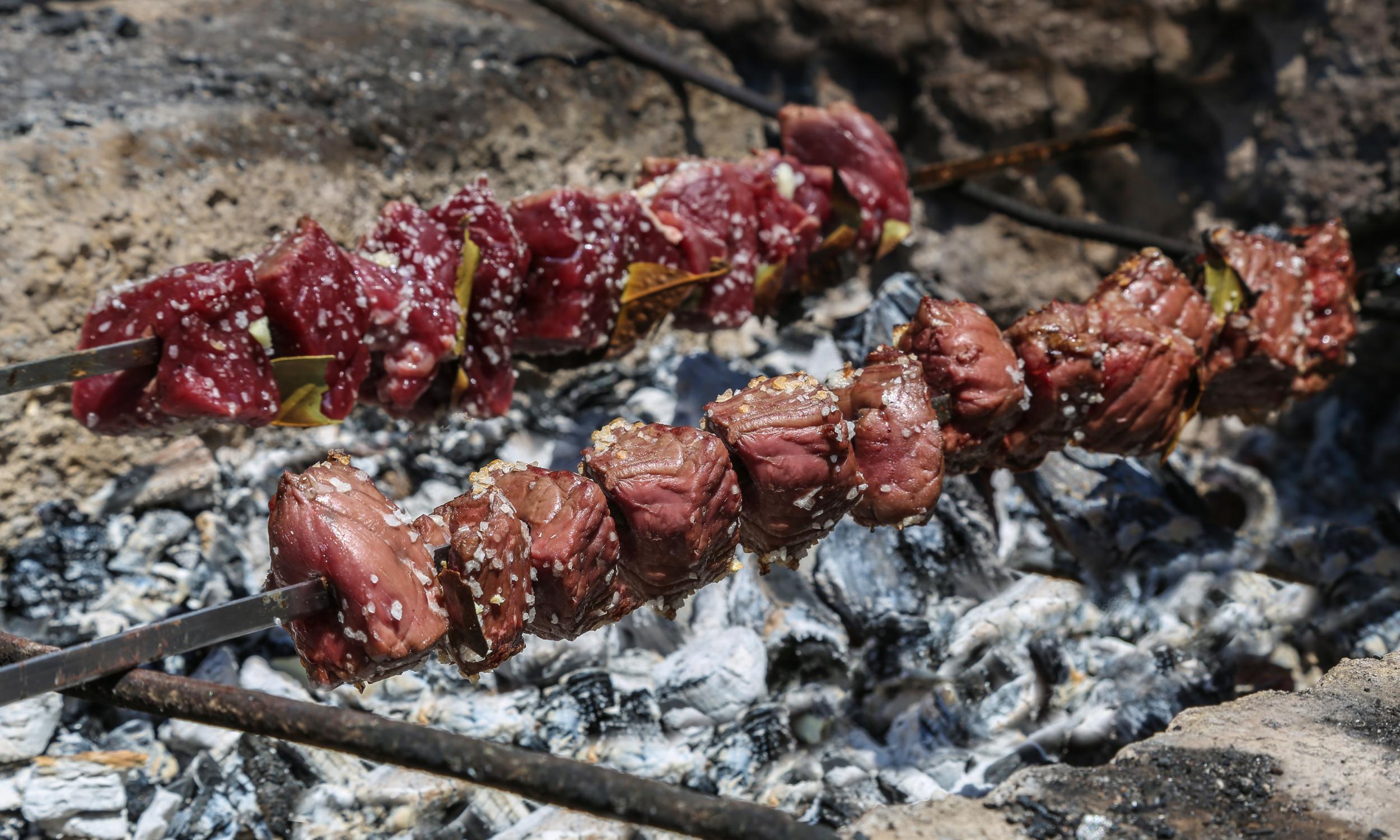
Active breaks
Madeira’s topography means that it’s ideal for adventurous activities. Madeira Outdoor (madeiraoutdoor.com) is dedicated to providing active breaks. They can arrange a whole range of activities from canyoning, climbing and coasteering to paragliding, kayaking and surfing and cater to all abilities. Prices vary according to the activity and length of session, but a 1.5-hour surfing lesson will cost €40 including equipment hire and pick-up and drop-off from your hotel, while a full-day of advanced canyoning (including transfers, snacks and drinks, in-activity photos and a guide) will set you back €300.
Freeride Madeira (freeridemadeira.com) is a mountain biking specialist offering tours from €69 for a 30km ride (including bike hire and transfers) and seven-night holidays from €749 including transfers and accommodation. They also offer bike rental from €20 a day.
Festivals
Madeirans love a party and there are festivals all year round. The Madeira Wine Festival (28 August – 10 September) is a traditional event which kicks off in Estreito de Camara de Lobos with the grape harvest and parade, with the chance to get involved and tread grapes. It then moves to the centre of Funchal with tastings, exhibitions and performances.
Madeira Carnival Festivities (22 February – 1 March 2017) is a riotous week-long extravaganza of parades and parties.
The Festa da Flor (4-21 May 2017) is a celebration of spring and one of the island’s biggest festivals with colourful parades and cultural events.
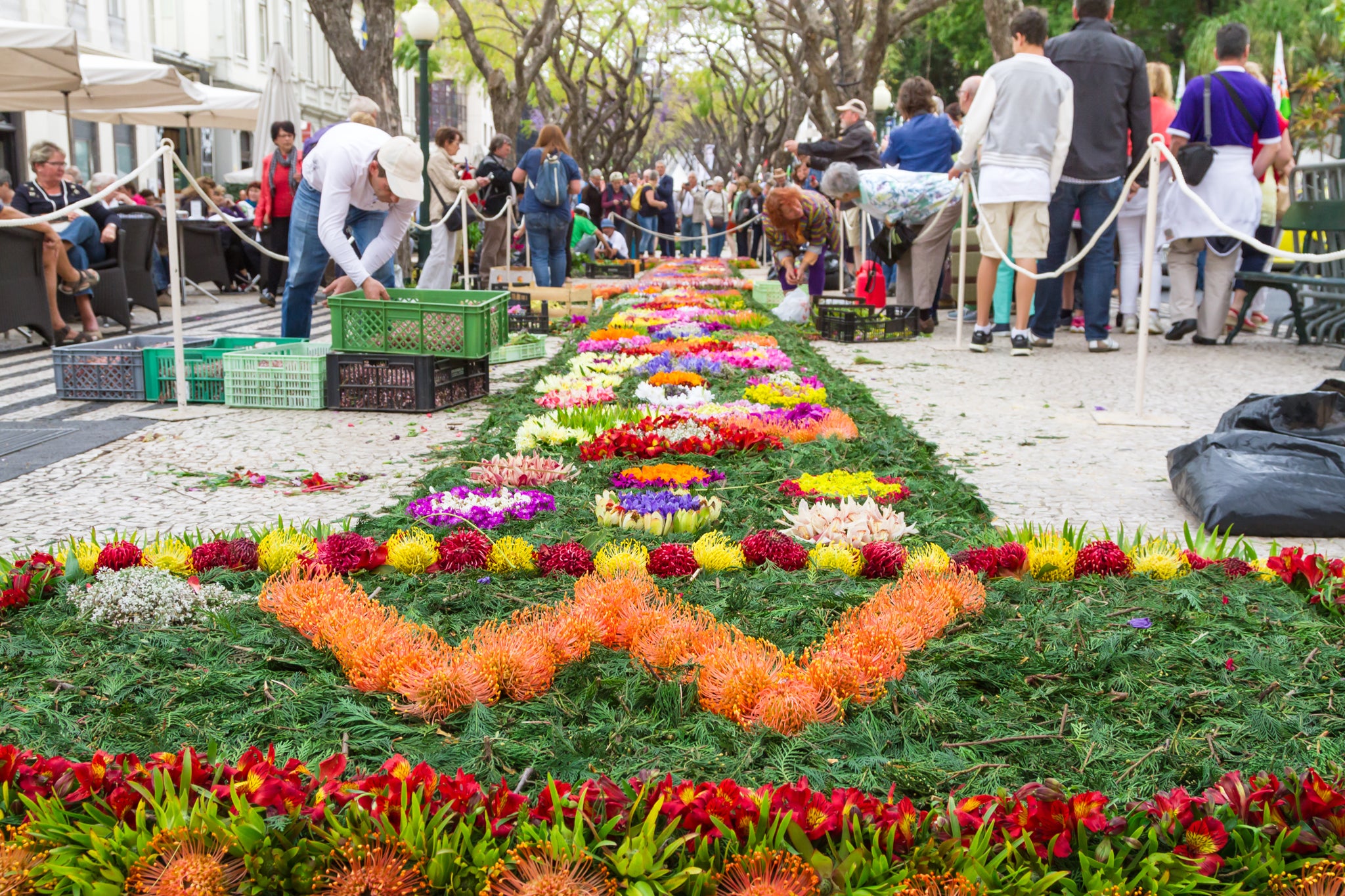
Madeirans love to push the boat out over Christmas and New Year and during the festive season Funchal is filled with spectacular illuminations. The New Year’s Eve fireworks even made it into the Guinness Book of Records in 2006/7 as the largest display in the world. It wasn’t a one-off though and the annual show is every bit as impressive as Sydney’s or London’s, but without the crowds.
Foodies will love the annual Rota das Estrelas (rotadasestrelas.com) festival of gastronomy, organised by the Cliff Bay hotel (portobay.com) – home of the island’s only Michelin-starred restaurant, Il Gallo d’Oro (ilgallodoro.portobay.com). It’s usually held in February and brings together leading chefs from across Europe. Dates haven’t yet been set for the 2017 extravaganza – they are usually not revealed until just a few months before.
Where to stay
Undoubtedly the most elegant rooms on the island are found at Belmond Reid’s Palace (belmond.com). Perched on the side of the cliff on the outskirts of Funchal, it has hosted everyone from Winston Churchill to Gregory Peck and even royalty. Doubles from €275 including breakfast.
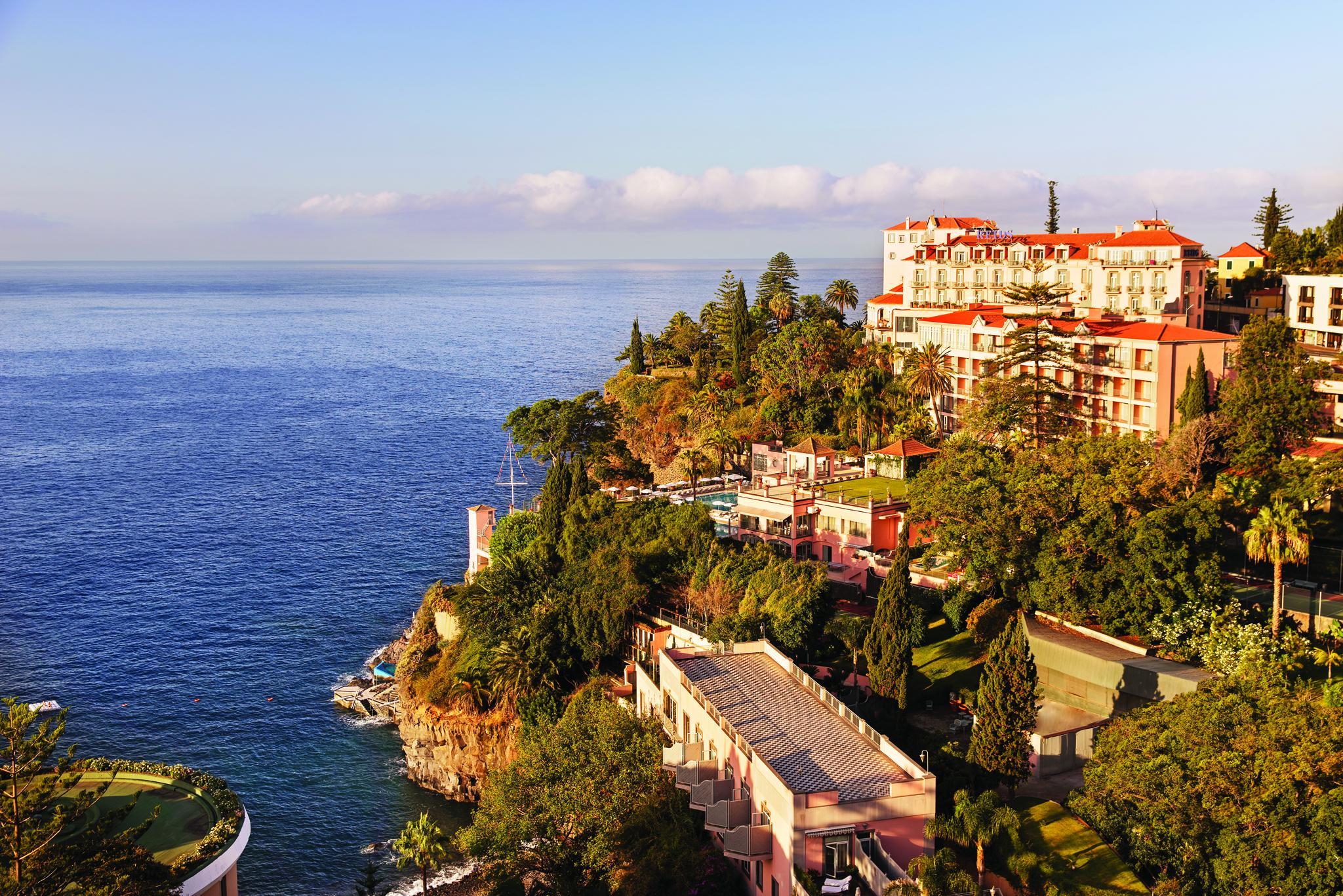
For a city-centre base, The Vine (hotelthevine.com) is achingly cool, with a rooftop pool, giant beds, a spa offering wine-inspired treatments and atrium-view doubles from €130, B&B.
Canto das Fontes (cantodasfontes.pt) is Madeira’s first luxury campsite, with just two tepees in a banana farm. A night in a tepee costs from €65, and guests are encouraged to help themselves to produce from the farm for breakfast.
Travel essentials
Getting there
British Airways (ba.com), easyJet (easyjet.com), Jet2 (jet2.com) and Monarch (monarch.co.uk) all offer direct flights to Madeira.
Tour operators offering packages to Madeira include Kuoni (kuoni.co.uk), Sovereign (sovereign.com) and Prestige Holidays (prestigeholidays.co.uk) for luxury breaks, and Thomson (thomson.co.uk) and Thomas Cook (thomascook.co.uk) for budget and family holidays.
Getting around
Funchal is easily explored on foot, but if you want to explore further afield then you’ll need to hire a car or hop on one of the local buses. Alternatively most taxi drivers will also act as a tour guide.
More information
Join our commenting forum
Join thought-provoking conversations, follow other Independent readers and see their replies
Comments